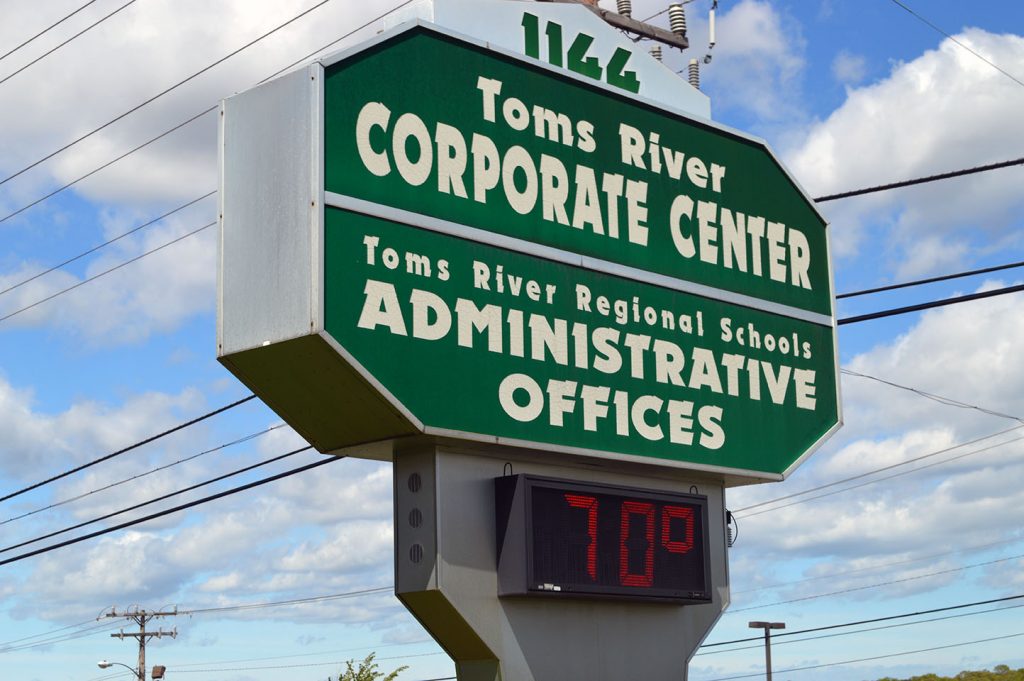
Toms River Regional (TRRS) Board of Education headquarters. (Photo: Daniel Nee)
Toms River school officials said the district will utilize about $1 million from its surplus account, plus save $366,000 in salaries due to retirements, which will make up the $1.3 million the district lost under a school funding deal hatched by the state legislature’s two top Democrats and signed into law by Gov. Chris Christie.
The $366,845 saved in salaries will not come through attrition. Instead, the savings will come through what is known as “breakage,” the term given to higher paid employees retiring and being replaced by lower-paid employees. In the district’s case, nine elementary teachers, two intermediate teachers and one high school teacher will be replaced with employees earning lower salaries. Retirements also allowed the district to rehire two security guards and custodians who were laid off last month.
Despite the work of officials to minimize the damage done by the budget cuts, many officials fear that additional cuts could be seen next year, which could force staff and program reductions. The use of $1 million in surplus funding also means the district will not have the emergency reserve it requires.
“For an organization our size, it’s something I’m not comfortable with,” said Business Administrator William Doering.
Doering said the state gave Toms River three options for replacing the money cut by the legislators and governor: utilize surplus, reduce appropriations (including staffing and programs) or a combination of both. Districts were not allowed to increase their tax rates, which have already been approved by the state Department of Education.
“It is essential that we continue to fight for our fair share of state aid,” said Superintendent David Healy. “We spent the better part of the last two years approaching it at one angle, but apparently we have to tackle it from a different angle.”
Doering warned the future could be event more damaging to the district’s finances.
“My greatest concern is the impact that this is going to have going forward,” he said. “We’re between a rock and a hard place, and this is going to create another hole going into next year. Next year is going to be an exceedingly challenging year – we’re talking very big dollars in terms of our issues.”
Doering said the township’s tax base is not recovering from Superstorm Sandy quick enough to bridge the budget gap, and more cuts from the state could be on the way.
“As bad as our situations is, we’re being squeezed,” he added.


Police, Fire & Courts
Toms River Man Sentenced to Prison for Assault, Eluding, Robbery, Threats







